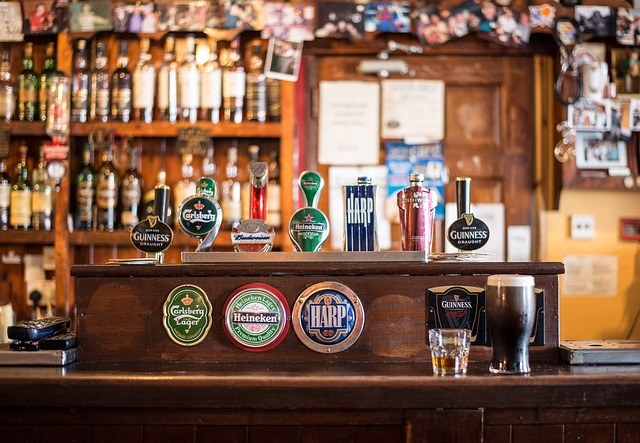
For many people it is a life goal to purchase and operate a pub. Often it’s a retirement plan or something to consider if you haven’t reached a milestone in your life. But despite what most people think, this isn’t a hassle free process. If you’re planning on buying a pub then here is a dummy’s guide to help you through:
Finding the Right Pub
When it comes to actually finding the pub, you need to make sure that it is going to be successful. To do this you need to look at several things including:
• Location – this will decide a lot of factors including: price, how busy it is, and the type of cliental and success.
• Turnover – if you’re buying an existing pub, find out what the existing turnover is. For new pubs or ones that have been shut for a while you will need to work out an estimated turnover.
• Managed, tenancy leave or freehouse – this will dictate the amount of investment you will put into the pub and will be explained in more depth below.
Typically it is safer to purchase an establishment which is, well, established. This way you can get a better idea of how much profit you are likely to make (based on existing figures) and can simply reopen under new management with the same suppliers and staff (if wanted) rather than starting completely from scratch.
Type of Running Arrangement
As with residential or commercial property, there are several variations on ownership when it comes to pubs. Here you don’t have the typical leasehold or freehold, but instead you have the choice of a managed, tenancy, lease of freehouse. The key difference between these running arrangements is the amount of investment needed to ‘buy in’, here’s a summary of what to expect:
• Managed – these are pubs owned by breweries or companies (Brains, JD Wetherspoon). They tend to train and employ the managers, provide the stockists and pay for all the associated costs of the pub.
o How does it work – typically the brewery or company will open up venues where they see potential profits. However, it is possible for you to purchase and own the building, then request a franchise where this named brand would use your venue.
o Money – you receive an income from the rent and depending on involvement/ contract a slice of the profits. This type of running arrangement costs the smallest amount of cash to set up, usually only requiring the initial purchase of the building.
• Tenancy – similar to the above situation however, the manager/ tenant of the establishment will be classed as the owner and will be responsible for all the costs of the business.
o How does it work – the tenant will enter into a short-term agreement with the landlord to run a pub in the venue while purchasing beer and other related products from the landlord.
o Money – this is a more expensive initial cost as the tenant will have to equip the pub with furnishings, decoration and stock. Any repairs or structural issues will be paid for by the landlord.
• Lease – again, a slightly less restricted version of a tenancy where you enter into an agreement with the landlord to run the pub but you are allowed to purchase your stock from elsewhere.
o How does it work – similar to the above, although the contract tends to be more lenient in terms of suppliers.
o Money – this is more expensive than a tenancy as not only will you need to furnish the venue, but will be responsible for sourcing your own stock and may have to pay for any repairs to the building.
• Freehouse – this is the option for when you own the business outright – it can be either freehold or leasehold as with normal property purchases.
o How does it work – youown and run the business, which means that all the costs associated with running the business fall on you.
o Money – the most expensive way to run a pub as you need to pay for absolutely everything, costs can therefore range from £100,000 upwards. This will strongly depend on the cost of the property and the price of stock, refurbishment etc. that’s needed.
Auction or Estate Sale
When it comes to making this purchase, you have a range of options, although the most popular ones are to buy at a commercial property auction or on the open market. There are pros and cons to both methods of purchasing, the main difference being that an auction is a much quicker process and there is much less chance of you being gazumped.
As auction properties don’t have to pay estate agent fees and are introduced at a low price with the bids steadily rising you can typically get a property for a much lower price. However, you will need to be able to quickly access the finances you need to secure the purchase within 30 days. For this you may requirethe services of a commercial mortgage broker as they are able to quickly scour the whole market in order to find the best lender for your needs.
Making the Offer
At auction, making an offer is done there and then as you bid towards the property, so if you are following this avenue of purchase you can skip to the next section.
With estate purchases make sure you negotiate in order to get the best possible price. You will want to be looking for key signs, like how long it has been on the market or the how much work needs to be done, in order to bring the price down. This can be more difficult when buying pubs that are in areas that have high demand, but there is almost always wiggle room when buying a property.
Once you’ve come to a price that you are happy with then you will need to put forward a formal instruction to the estate agent. At this point you will also benefit from asking them to take the property off the market and paying any fees associated with that in order to avoid gazumping.
Getting Finance
If this is your first commercial property purchase then you may not be aware that lenders typically require a much higher deposit before they will provide you with a loan. Typically you will need to raise at least 30% towards the price of the property, although for lower rates even more will be required.
There are a wide variety of commercial mortgages available so you will need to make sure that you are applying for the right one for your needs. If you are undertaking any form of ownership that is not freehouse then you will most likely require a commercial business loan rather than a mortgage, but be sure to talk to a broker to find out more about what finance you need.

Completing the Sale
Regardless of which method you used to buy the property, the following process will be very similar with both parties’ solicitors working to get together all the documents and information needed to complete the sale. There won’t be much for you to actively do at this stage except for signing the bill of sale and transferring ownership to yourself.
Running the Pub
The pub is yours, now it’s up to you to run it to the best of your ability. There is plenty of help available online, from your local government and through various organisations, so there are many ways to turn if you run into a tricky situation. Be sure to have the finances for the launch of your new establishment sorted out in advance to avoid finding yourself struggling for cash before you’ve even sold your first pint.
Good luck, and may your dream of owning a pub come true!





